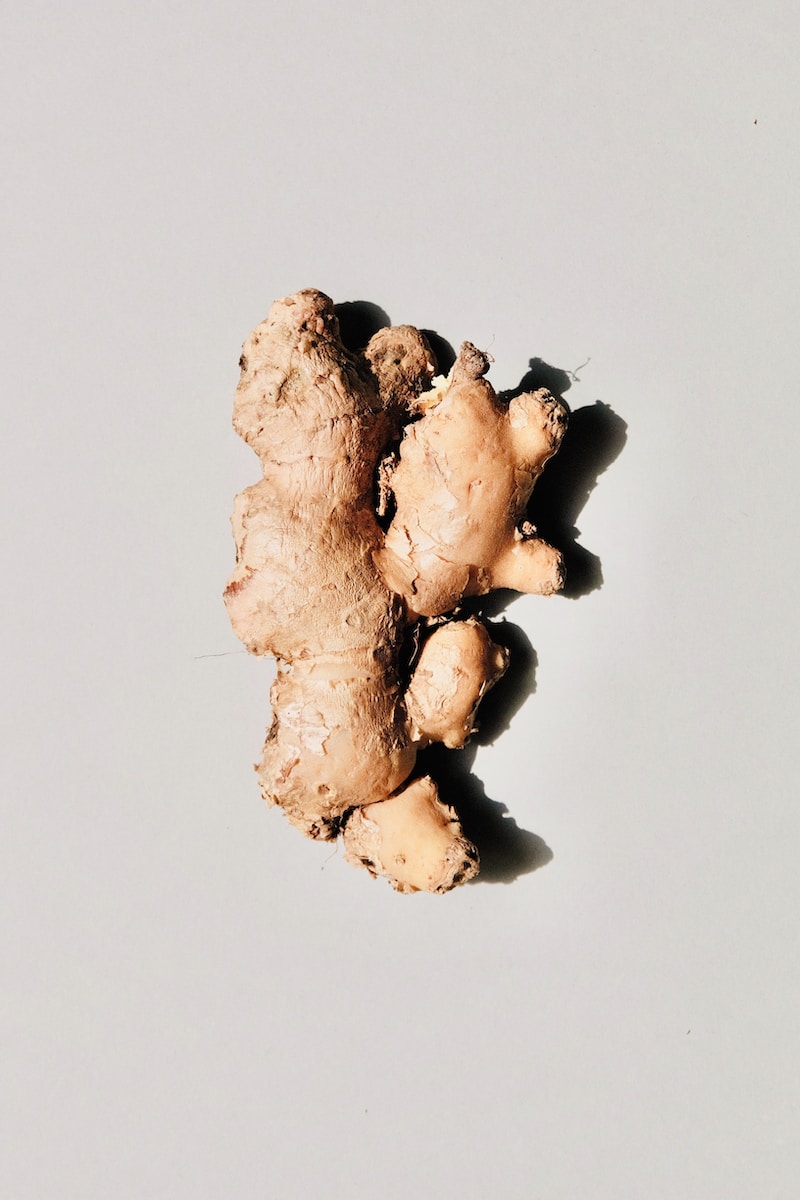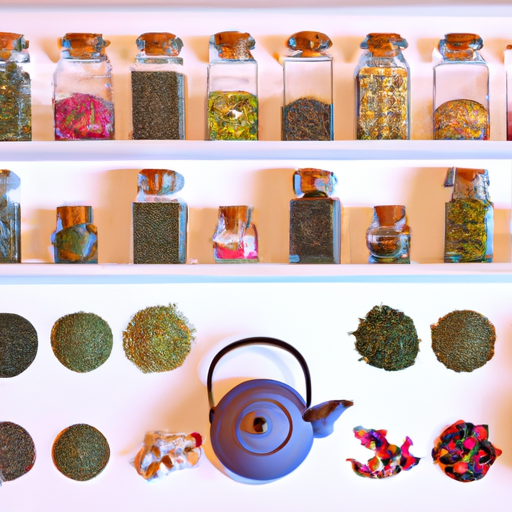Are you looking for a natural way to reduce your cholesterol levels? Look no further than your teacup! Herbal tea has been well-known for its many health benefits, and certain types can also assist in lowering cholesterol.
In this article, we will explore the top herbal teas that have been shown to have a positive impact on cholesterol levels.
Green tea, known for its antioxidant properties, has been extensively studied for its cholesterol-lowering effects.
Hibiscus tea, with its vibrant color and tangy flavor, has also been found to have a significant impact on cholesterol levels.
Rooibos tea, a caffeine-free alternative, has emerged as a natural solution for lowering cholesterol.
Peppermint tea, with its refreshing taste, may also contribute to reducing cholesterol.
Ginger tea, with its spicy kick, has been suggested to help manage high cholesterol levels.
Chamomile tea, known for its calming properties, may play a role in cholesterol management.
Finally, cinnamon tea, with its delightful aroma and taste, has been found to be a tasty beverage for lowering cholesterol levels.
So, grab your teapot and join me as we delve into the world of herbal teas that can help lower cholesterol naturally.
Key Takeaways
- Herbal tea, such as green tea, hibiscus tea, rooibos tea, and peppermint tea, can help lower cholesterol levels naturally.
- Regular consumption of green tea can decrease LDL cholesterol levels and increase HDL cholesterol levels due to its catechins content.
- Hibiscus tea contains high levels of antioxidants that reduce inflammation and oxidative stress, resulting in lower LDL cholesterol and higher HDL cholesterol.
- Rooibos tea, with its flavonoids, can decrease LDL cholesterol levels and increase HDL cholesterol levels, providing a natural solution for lowering cholesterol.
Green Tea and Cholesterol Reduction
If you’re looking to lower your cholesterol levels, one herbal tea that can do wonders is green tea. Green tea has been widely studied for its potential benefits in cholesterol management. It contains a group of antioxidants called catechins, which have been shown to reduce cholesterol levels in multiple research studies.
These catechins have the ability to inhibit the absorption of cholesterol in the intestines and promote its excretion from the body. Several studies have found that regular consumption of green tea can lead to a decrease in LDL cholesterol levels, also known as the ‘bad’ cholesterol.
Additionally, green tea has been shown to increase HDL cholesterol levels, which is the ‘good’ cholesterol that helps remove LDL cholesterol from the bloodstream. Incorporating green tea into your daily routine may therefore be a simple and effective way to improve your cholesterol profile.
Hibiscus Tea and Its Impact on Cholesterol Levels
Hibiscus tea can actually have a positive effect on your cholesterol levels. Studies have shown that regularly consuming hibiscus tea can help lower LDL cholesterol, also known as the ‘bad’ cholesterol. This is due to the high levels of antioxidants present in hibiscus tea, which can help reduce inflammation and oxidative stress in the body.
Additionally, hibiscus tea has been found to increase HDL cholesterol, the ‘good’ cholesterol, which helps remove LDL cholesterol from the bloodstream.
To incorporate hibiscus tea into your daily routine, you can try different recipes. One popular option is to brew hibiscus tea and add a squeeze of lemon or a dash of honey for added flavor. Another option is to make hibiscus iced tea by brewing the tea and then chilling it in the refrigerator.
Whichever recipe you choose, incorporating hibiscus tea into your diet can be a delicious way to support your cholesterol health.
Rooibos Tea: A Natural Solution for Lowering Cholesterol
Indulging in a refreshing cup of rooibos tea is a delightful way to naturally support your heart health. Rooibos tea, also known as red bush tea, has been shown to have numerous benefits, including its potential to lower cholesterol levels. Studies have found that consuming rooibos tea can help decrease LDL cholesterol, also known as the ‘bad’ cholesterol, while increasing HDL cholesterol, the ‘good’ cholesterol.
This is due to the presence of antioxidants called flavonoids, which help protect against oxidative stress and inflammation in the body. To incorporate rooibos tea into your daily routine, simply steep a tea bag in boiling water for about 5-7 minutes, and enjoy it hot or cold. You can also add a splash of lemon or honey for added flavor.
Make rooibos tea a part of your heart-healthy lifestyle today!
Peppermint Tea and Its Potential Cholesterol-Lowering Effects
Experience the potential cholesterol-lowering effects of peppermint tea by incorporating it into your daily routine. Peppermint tea is not only refreshing but may also have positive impacts on your cholesterol levels. Studies suggest that peppermint tea may help lower total cholesterol and LDL cholesterol levels, commonly known as the "bad" cholesterol. However, it is important to note that more research is needed to fully understand the extent of these effects.
When considering peppermint tea as a potential cholesterol-lowering remedy, it is essential to be aware of its potential side effects. While peppermint tea is generally safe for most people, it can cause heartburn or worsen symptoms for individuals with gastroesophageal reflux disease (GERD). Additionally, peppermint tea may interact with certain medications, so it is advisable to consult with a healthcare professional before incorporating it into your routine.
As for the recommended dosage, there is no specific guideline for peppermint tea. However, it is generally safe to consume 1-2 cups per day. Moderation is key, and if you experience any adverse effects, it is best to reduce or discontinue consumption.
Ginger Tea: A Spicy Remedy for High Cholesterol
Ginger tea, with its spicy flavor, offers a potential remedy for high cholesterol levels. This herbal tea has been studied for its cholesterol-lowering effects and has shown promising results.
Here are some benefits of ginger tea:
-
Reduces LDL cholesterol: Ginger contains compounds that can help lower LDL (bad) cholesterol levels, which is important for maintaining heart health.
-
Anti-inflammatory properties: Ginger has anti-inflammatory properties that can help reduce inflammation and promote overall cardiovascular health.
-
Antioxidant effects: Ginger is rich in antioxidants, which can help prevent oxidative damage to the arteries and reduce the risk of plaque buildup.
-
Improves blood circulation: Ginger tea can help improve blood flow and circulation, which is vital for maintaining healthy cholesterol levels.
-
Easy to make: Ginger tea can be easily brewed at home using fresh ginger root or ginger tea bags. There are also various ginger tea recipes available for those who prefer a more flavorful option.
Incorporating ginger tea into your daily routine may offer potential benefits for managing high cholesterol levels. However, it’s important to note that ginger tea alone may not be enough to significantly lower cholesterol, and it’s always best to consult with a healthcare professional for personalized advice.
Chamomile Tea and Its Role in Cholesterol Management
Chamomile tea, with its soothing aroma and calming properties, offers a potential solution for managing cholesterol levels. Studies suggest that chamomile tea may help lower cholesterol by reducing inflammation and oxidative stress in the body. It contains antioxidants called apigenin and luteolin, which have been shown to have anti-inflammatory effects and may contribute to the overall reduction in cholesterol levels.
Additionally, chamomile tea has been used for centuries as a natural remedy for various health issues, including promoting relaxation and improving sleep quality. To enjoy the benefits of chamomile tea, simply steep a chamomile tea bag in hot water for a few minutes. You can also try adding a teaspoon of honey and a squeeze of lemon for added flavor.
Incorporating chamomile tea into your daily routine may be a delicious and natural way to support your cholesterol management efforts.
Cinnamon Tea: A Tasty Beverage for Lowering Cholesterol Levels
To enhance your cholesterol management routine, try incorporating cinnamon tea into your daily regimen for a flavorful and effective way to support healthy levels. Cinnamon has been shown to have numerous health benefits, including its potential to lower cholesterol levels. Studies have found that cinnamon can reduce total cholesterol, LDL (bad) cholesterol, and triglyceride levels, while increasing HDL (good) cholesterol. This is due to the presence of compounds in cinnamon that have antioxidant and anti-inflammatory properties.
To make cinnamon tea, simply steep a cinnamon stick or a teaspoon of ground cinnamon in boiling water for about 10 minutes. You can also add a squeeze of lemon or a teaspoon of honey for added flavor.
Here is a table summarizing the potential benefits of cinnamon tea for cholesterol management:
| Benefits of Cinnamon Tea |
|---|
| Reduces total cholesterol |
| Lowers LDL cholesterol |
| Decreases triglyceride levels |
| Increases HDL cholesterol |
Incorporating cinnamon tea into your daily routine can be a simple and enjoyable way to support your efforts in maintaining healthy cholesterol levels.
Frequently Asked Questions
Are there any potential side effects or risks associated with drinking herbal teas for cholesterol reduction?
While herbal teas are generally safe, it’s important to note that there may be potential risks and long-term effects associated with their use for cholesterol reduction. It’s always best to consult with a healthcare professional for personalized advice.
How long does it typically take to see results in cholesterol levels after regularly consuming herbal teas?
Regularly consuming herbal teas can be effective in lowering cholesterol levels, but it may take time to see results. The recommended daily servings for cholesterol reduction vary depending on the type of tea and individual needs.
Can herbal teas be used as a replacement for cholesterol-lowering medications?
Yes, herbal teas have been found to have cholesterol-lowering benefits and can be used as natural alternatives to cholesterol-lowering medications. However, it is important to consult with a healthcare professional before replacing medications with herbal teas.
Are there specific brands or varieties of herbal teas that are more effective in lowering cholesterol?
In my research, I found that a study published in the Journal of Nutrition showed that specific herbal tea brands like green tea and hibiscus tea have been found to be effective in lowering cholesterol levels.
Can herbal teas be combined with other lifestyle changes, such as diet and exercise, for better cholesterol-lowering results?
Combining herbal teas with lifestyle changes, such as diet and exercise, can be effective in reducing cholesterol levels. Exercise, when paired with herbal teas, plays a crucial role in achieving better cholesterol-lowering results.
Conclusion
In conclusion, incorporating herbal teas into your routine can be a natural and delicious way to help lower cholesterol levels. Research has shown that green tea, hibiscus tea, rooibos tea, peppermint tea, ginger tea, chamomile tea, and cinnamon tea all have potential cholesterol-lowering effects.
One interesting statistic to note is that a study found that consuming hibiscus tea daily for six weeks reduced total cholesterol levels by an average of 8.2%.
However, it’s important to remember that herbal teas should be used as part of a healthy lifestyle and not as a sole treatment for high cholesterol. Always consult with a healthcare professional for personalized advice.










